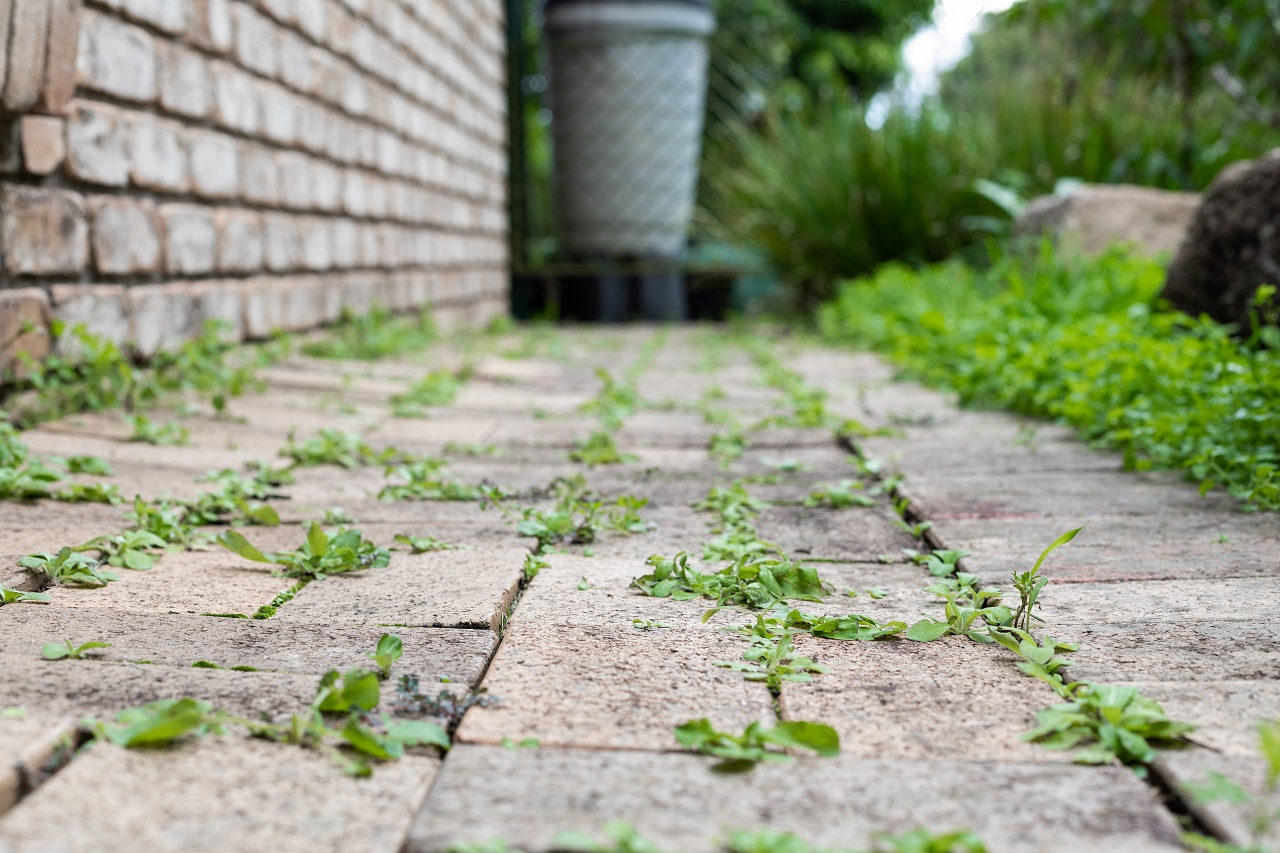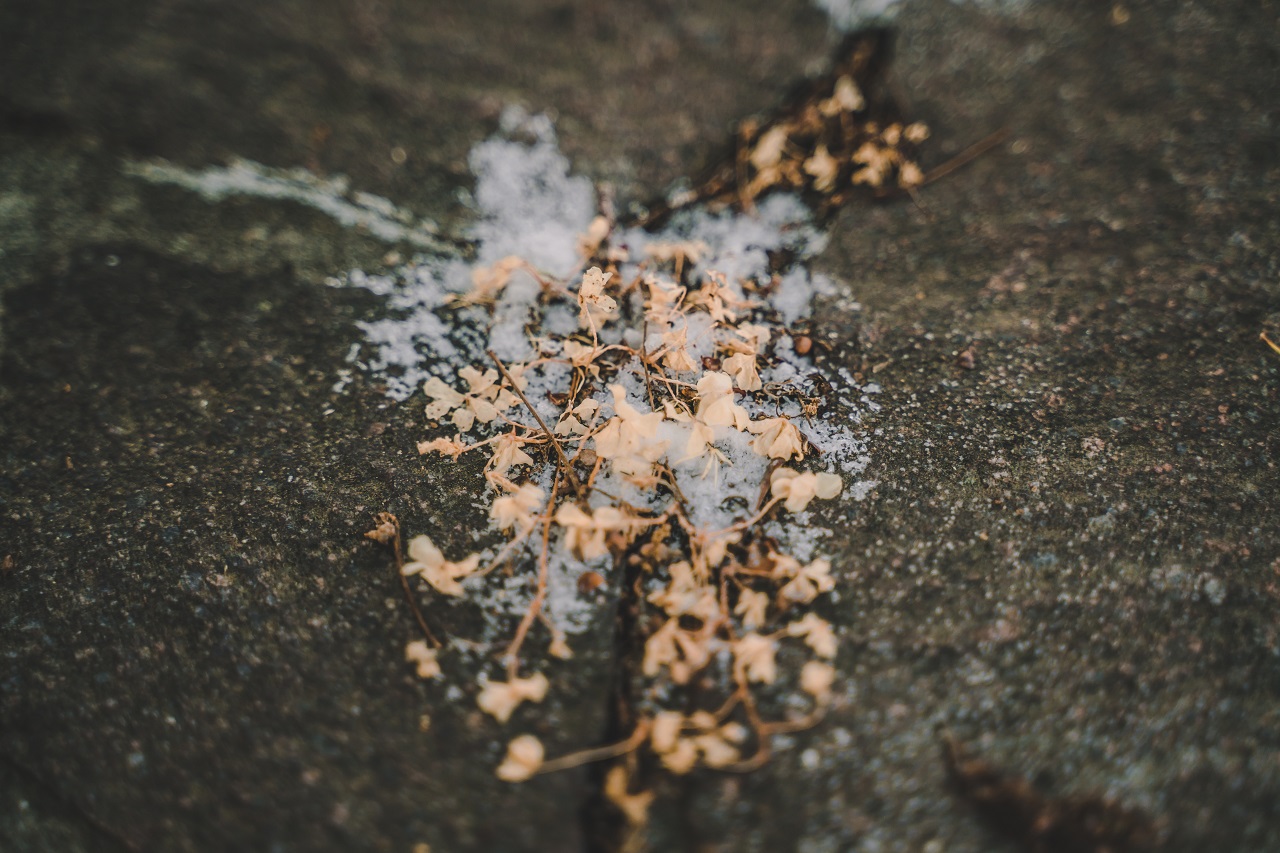Weeds are the bane of every gardener’s life, but it doesn’t need to be that way.
What can you do if you want to prevent weeds from stealing nutrients, sun, and water from your plants but you don’t want to use chemical weed killer, though?
Well, there are many ways you can fight back against weeds in your garden using homemade weed killer that really works.
While you can blitz weeds using non-chemical methods, these are typically non-selective solutions. This means they will kill anything they come into contact with, not just weeds.
So, if you want to keep your family, pets, and the local wildlife safe from potentially harmful chemical, explore out list of all-natural alternatives.
I. 8 Organic Weed Killers That Actually Work
- Vinegar
- Salt
- Baking soda and vinegar
- Boiling water
- Corn gluten
- Rubbing alcohol
- Propane torch
- Lemon juice
1) Vinegar
Vinegar is one of the most effective homemade weed killers you can use. Easy to prepare, vinegar will kill a variety of common weeds.
All you’ll need is a vinegar with high levels of acetic acid and a surfactant like dish soap. This surfactant doesn’t do anything to kill weeds, but it will help the vinegar stick to the leaves of the weeds where it can further penetrate and damage them.
Just pour the above ingredients into a regular spray mix and shake it thoroughly to mix. Wait until you are confident of getting several days of unbroken sun. If it rains, the vinegar will be prematurely washed off the leaves of the weeds before it has chance to start taking hold.
Simply spray the solution straight onto the weeds, but be sure to keep it well away from your other plants. Vinegar will not discriminate.
2) Salt
If you apply salt in high enough doses, it can be extremely harmful to plants. The damage is caused because salt – sodium chloride – will dehydrate plants. For this reason, salt is also harmful to other plants, and it can interfere with the soil’s pH levels.
Use salt, then, only for paths and paving. Ensure that none of the solution makes its way into the nearby soil.
To use salt as a weed killer, you need to dissolve one part of salt with two or three parts of water. Avoid using sea salt, rock salt, or Epsom salts and stick with regular household table salt.
3) Baking soda and vinegar
Acetic acid in the form of vinegar is an effective organic weed killer. It works even better when used in combination with other agents, though.
Mixing two parts white vinegar to one part baking soda – you can add some optional lemon juice if you have especially stubborn weeds – gives you a great natural weed remedy. Even better, you’re liable to have all the ingredients already on hand.
This method works best on paved areas with annual or young weeds. You’ll need to put up with a fairly unpleasant smell, too.
4) Boiling water
The quickest and easiest method of attacking unwanted weeds is to use some boiling water. There is no mixing involved, and you don’t need to wait for the right time to apply the solution either.
Just boil up some water and then pour it directly onto the leaves of the weeds you are targeting. Make sure you pour the water over liberally so it seeps fully down to the roots.
Pouring boiling water directly from the kettle is the easiest way to scald weeds. This allows you to make use of the spout to channel the water exactly where you want it.
5) Corn gluten
Corn gluten is not a weed killer at all, but rather a weed suppressor. As they say, prevention is the best cure, so it’s well worth trying to prevent weeds from growing in the first place.
If you use corn gluten on your garden properly, it can inhibit the formation of crabgrass. What does proper use mean, though?
Well, you’ll need to do two things:
- Time the application of corn gluten to coincide with the crabgrass germinating. This will occur at around the same time lilacs are blooming in your area
- Ensure that you apply the corn gluten during a dry period
All you need to do is spread the corn gluten powder over your soil. You won’t need to mix anything at all.
Once you have applied the corn gluten, use your garden hose or sprinkler to water the corn gluten. This will call for roughly ¼-inch of water. You’ll need the weather to remain dry for a few days or the corn gluten won’t impact the roots of the weeds and they will not be killed. This means there is an element of luck involved with this method, and there’s no guarantee you’ll get it right first time if you get unexpected rainfall.
6) Rubbing alcohol
Rubbing alcohol is an astringent substance that strips moisture from the foliage of weeds. With this life force stripped away, the weeds will die.
Just use one quart of water for every two tablespoons of rubbing alcohol. Mix the diluted solution in a spray bottle.
Just like if you were using vinegar, apply the diluted rubbing alcohol by spraying it directly onto any weeds you want to target. As with the other methods, keep the solution away from any other plants.
7) Propane torch
Propane torches are long-handled devices intended to torch weeds in the same way as boiling water, by attacking them from the roots up.
You can find many of these propane torches. They have long tubes with flame tips. You attach a regular bottle of propane to the device. Thanks to the elongated handle, you can blitz any offending weeds without needing to stoop.
Exercise extreme care when using these tools in super-dry conditions, or anywhere with surrounding brush.
8) Lemon juice
The citric acid in lemon juice will shrivel and kill weeds.
Juice five or six lemons, or use some ready-squeezed lemon juice if you’re crunched for time. We prefer the second option.
Apply the lemon juice directly to the weeds and wait to see if this method does the trick.
II. Conclusion
Well, we hope you have enjoyed today’s guide to homemade weed killer that really works. As you can see, none of these methods calls for much time or effort, so why not give them a try?
By avoiding synthetic ingredients, you’ll ensure you garden is safe for kids, pets, and local wildlife.
With some of these methods, you can see results within the hour, especially if you are dealing with broad-leaf weeds. After 24 hours, you’ll see a noticeable improvement with far fewer unwanted plants, but no Roundup required.
As an added kicker, if you regularly acidify your soil, this can make it tough for future weed seeds to germinate.
Bookmark Wild River Country before you head off today. We update our content daily, so pop back soon and don’t miss out on more great guides. See you soon!


